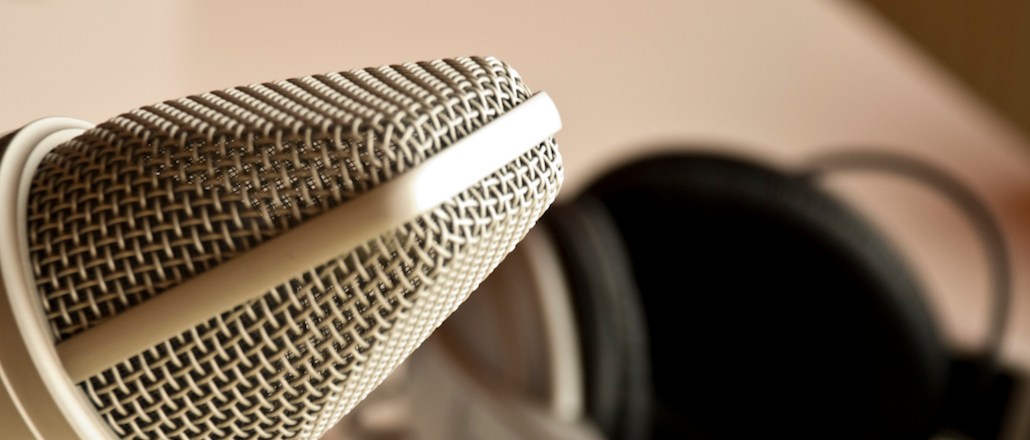Secure your place at the Digiday Publishing Summit in Vail, March 23-25

Empire has found an unlikely medium for going in deep on film: podcasts.
The Bauer title started bringing film fans audio four years ago. The 27-year-old magazine already had a sizeable, established base, so around 25,000 people tuned into the first Empire Film Podcast. Now it gets up to a 100,000 downloads a week to its podcast, a 50-minute show featuring magazine editorial staff and guests talking about movie news and reviews.
It’s a solid audience, but podcasts are still relatively nascent in the U.K., so finding a comparable standard is tricky. According to an April survey by the Radio Joint Audience research (Rajar), 7 percent of people listen to podcasts. But they are highly engaged, spending six hours a week with them.
“The experience as a listener is so much more intimate between the brand and the individual,” Empire editor-in-chief Terri White told Digiday. “As a media brand you get no other opportunity to do that, when you’re speaking digitally or over social you’re speaking to a community of people. Everyone is beginning to realize how important it can be.”
White characterizes the first Empire podcasts as a little rough: a few awkward jokes and not-so-slick segues. But the cost to Bauer is low. Empire uses the studios at heat radio studio (owned by Bauer), and the content is created, edited and produced by five of the edit staff, led by Chris Hewitt. Low cost doesn’t mean low quality, though, and White said it has come far since its first show.
Here are some of the ways Empire has honed its podcasts.
https://soundcloud.com/empiremagazine/captain-america-civil-war-spoiler-special-with-joe-anthony-russo-kevin-feige
It changed the commercial model.
“Every part of modern media brand has to punch its weight commercially,” White believes there’s only so far that a podcast can go by being just a marketing tool.
Previously, the Empire film podcast was sponsored by brands, like whiskey brand Jameson. Now it’s looking to events to drive revenue. It has held Q&A sessions where it has recorded podcasts in front of a live audience at the Prince Charles cinema in London, but it plans to charge for these and run them monthly. In September, it’s running Empire Live, a weekend-long film festival of screenings, script reading and podcast recordings. Revenue is coming from show sponsors like AEG, parent company of O2, as well as ticket sales.
“We need to be delicate about what podcasts are being positioned as an alternative to,” said Tom Dunn, head of futures at Maxus, “because it’s not radio.” Radio ads repurposed for podcasts aren’t going to fly, a reason why media companies are looking to live events as an alternative revenue stream.
It keeps the egos in check.
Empire’s film-buff podcast anchors have a cult following among the Empire magazine audience, “but we need to keep the egos in check,” said White. She added that it’s important to be aware of the audience’s time, just as you would with a long-form written article: “It’s not all about you.” Cracking in-jokes and creating an air of exclusivity will alienate audiences.
“Brands work really hard at creating the atmosphere where it feels like it’s for just that person,” she said. This means extra editing and running shows past people who weren’t there for the recording to make sure that it works.
It cross-promotes on platforms.
Empire’s magazine is still its main product. But when film stars come to the offices for cover shoots, they get pulled into the podcasts, meaning Tom Hanks, Robert De Niro Steven Spielberg, Alan Rickman and Meryl Streep have all made appearances.
The podcasts get posted across its Facebook and Twitter accounts too, where Empire has a combined fanbase of nearly 1 million fans. Getting a viral spin on audio clips is not an easy task, and Empire, like other media companies, is cutting up clips of the podcasts to make things more shareable.
“The social sharing is much better than 10 years ago,” said Dunn, who compares podcasting to watching Netflix: not something inherently shareable in itself, but people go to Facebook and Twitter to chat it through. “It’s a slow-burn on social; it’s one-step removed from going viral. The discoverability needs to surface good content for the industry to move forward.”
More in Media

The case for and against publisher content marketplaces
The debate isn’t whether publishers want marketplaces. It’s whether the economics support them.

Urban Outfitters shifts its influencer strategy from reach to participation
Me@UO is Urban Outfitters’ new creator program leverage micro-creators with smaller, engaged communities that are passionate about the brand.

Media Briefing: Without transparency, publishers can’t tell if Google’s Preferred Sources feature benefits them
Six months in, Google’s Preferred Sources promises loyalty-driven visibility, but leaves publishers guessing at the traffic impact.





